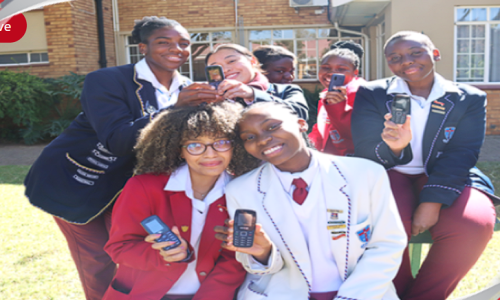Articles
Child headed households are a reality – but you can make a difference.
-
1 year ago
Studies show that a staggering 26,000 children between 0 and 17 years old are currently living in child-only households across South Africa, without a parent or caregiver to provide for them. These children are being robbed of the vital support and safety of a family, hindering their physical, social, and emotional well-being and development.
Growing up in a child-headed household, without the guidance and love of a parent or adult, often leads to long-term trauma and emotional scars. Unfortunately, many children born into poverty and challenging socio-economic conditions are forced to endure this reality. “These children are vulnerable, and often forced to become parents and breadwinners long before their time and give up their childhoods as a result.” says Bertha Maringi, Family and Social Services Leader at Rays of Hope.
Lerato, who lost her mother when she was just 14 years old, knows all too well the devastating effects of growing up in a child-headed household. She became the sole breadwinner for her older sibling, Thando, taking on the responsibility even though she was younger. The absence of a parent caused her to struggle greatly, leading her to fail all her subjects at school and eventually drop out a few years later after falling pregnant. Teen pregnancy is, unfortunately, often a consequence of parent-less homes. The rate of teen pregnancies have been on the rise in South Africa, with a 50% increase in the number of teen girls giving birth at public health facilities over the last five years.
As Maringi points out, children dropping out of school and getting pregnant are just two of the many ripple effects of the cycle of poverty in South Africa. Other detrimental effects include a continued reliance on government grants, which drains public funds, as well as crime and violence as young people in these circumstances become desperate to make ends meet.
It’s crucial that we take a sustainable approach to help those living in previously disadvantaged communities. Rays of Hope Alexandra is one organization that is working towards changing the narrative of poverty for the people of Alexandra. They met Lerato’s family when she was 19 years old and started to support them physically and emotionally and were even able to offer Lerato her first job and a means to provide for her family, thereby stopping the poverty cycle in its tracks by moving them from vulnerability to independence. Lerato also now works for Rays of Hope.
Through its various programs, like the teenage boys and girls support group, workshops dedicated to helping parents be better parents and the counselling centre, the organization is striving to make a positive impact from the grassroots level. Their vision is to create empowered resilient leaders and families living with dignity and hope.
Intervening at a young age is essential to breaking the cycle of poverty and giving every child the chance to enjoy a healthy, nurturing, and fulfilling childhood. By sponsoring a child through Rays of Hope, you can help give children in child-headed and vulnerable households the chance to have a different future. Every child deserves the opportunity to play, learn, and develop in the appropriate ways, without being forced to grow up before their time. Together we can make this a reality for all children in South Africa.
Related Articles Posts
Categories
Popular Post
-
 SA’s IT spend to outpace GDP growth 1 year ago
SA’s IT spend to outpace GDP growth 1 year ago -
 Vodacom, Netstar launch free in-taxi Wi-... 1 year ago
Vodacom, Netstar launch free in-taxi Wi-... 1 year ago -
 South Africa under pressure to fill cybe... 1 year ago
South Africa under pressure to fill cybe... 1 year ago -
 Organisations with a strong employee val... 1 year ago
Organisations with a strong employee val... 1 year ago -
 Joint policy-in-action event highlights... 1 year ago
Joint policy-in-action event highlights... 1 year ago -
 Boost your digital transformation journe... 1 year ago
Boost your digital transformation journe... 1 year ago








